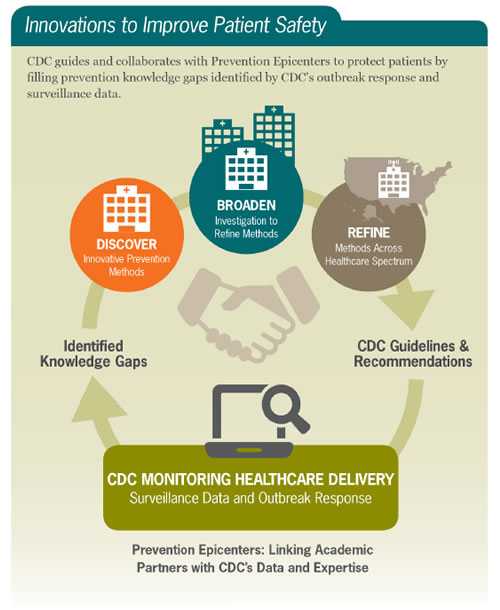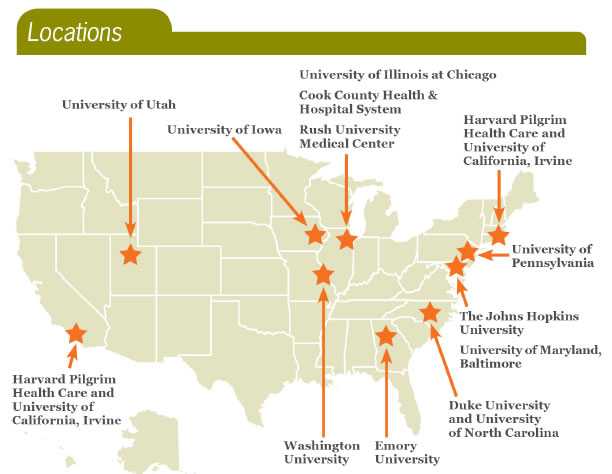CDC’s Prevention Epicenters Program is a unique research program in which CDC’s Division of Healthcare Quality Promotion (DHQP) collaborates with academic investigators to conduct innovative infection control and prevention research.
Prevention Epicenters
- Chicago Prevention and Intervention Epicenter
- Duke University and University of North Carolina
- Emory University
- Harvard Pilgrim Health Care and University of California, Irvine
- The Johns Hopkins University
- University of Illinois, Chicago
- University of Iowa Carver College of Medicine
- University of Maryland School of Medicine
- University of Pennsylvania
- University of Utah School of Medicine
- Washington University
Discovering New Ways to Protect Patients


- Page last reviewed: November 18, 2015
- Page last updated: June 24, 2016
- Content source:


 ShareCompartir
ShareCompartir